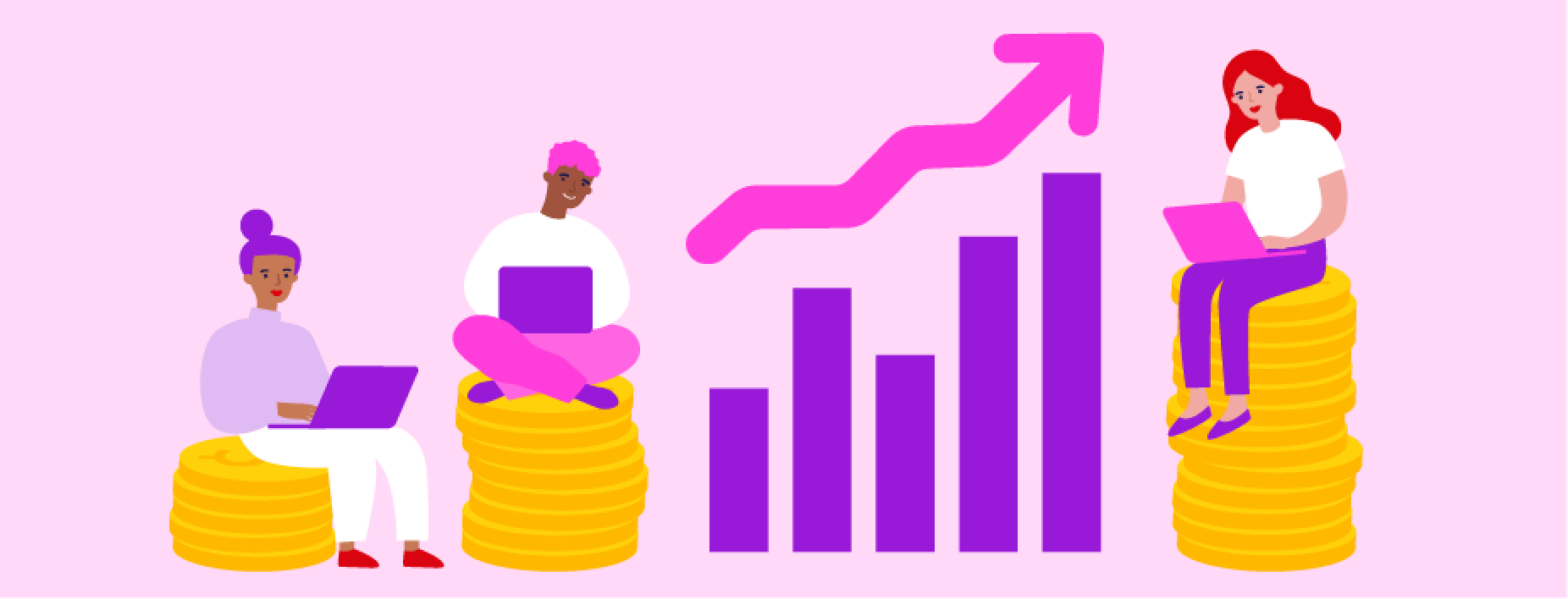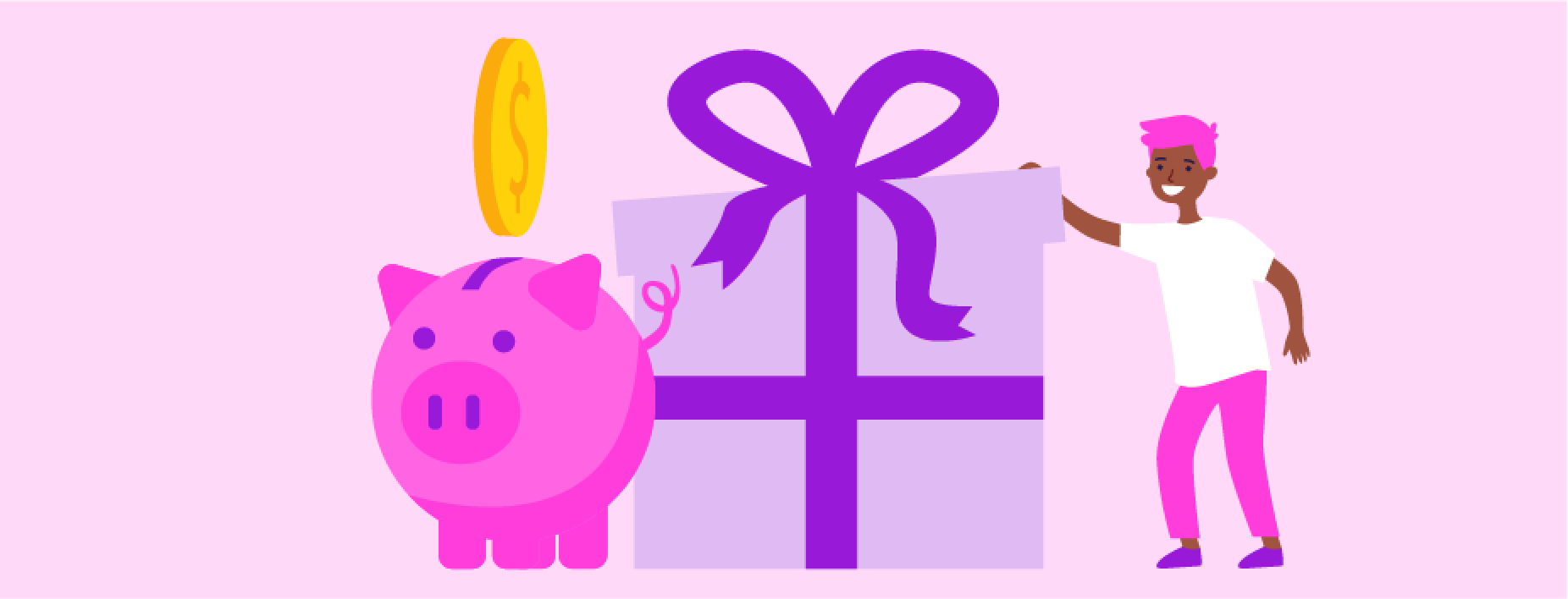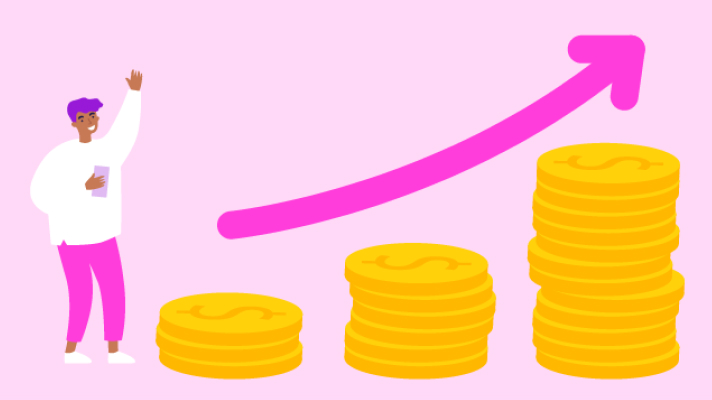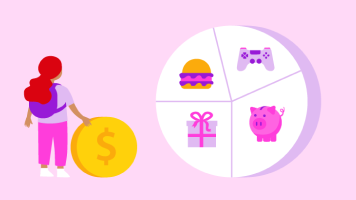Your guide to long-term savings and investment
It's never too early to start saving and invest your money – your first steps can start with just a few dollars, some basic knowledge and the support of a trusted adult.

Key takeaways from this article:
- Saving or investing your money may help you grow it over time.
- There are many different types of investments, including: bonds, shares in a company on the stock market, managed funds (mutual funds) and properties. Each carries different risks that you need to be aware of.
- Each type of investment has different interest rates, or rates of return. Typically, higher returns come with higher risks.
- Because different types of investments carry different risks, it's important to diversify your portfolio and invest in different types of things.
Why start now?
Famous businessman and investor Warren Buffet once said: “Someone’s sitting in the shade today because someone planted a tree a long time ago”.
Instead of spending all the cash he earned doing odd jobs, Buffett started investing some of these funds when he was very young. By the time he was 30 years old, he had made a million dollars. Now in his 90s, Buffett is one of the world's leading investors and richest people.
Saving and investing is about putting money away today for the future. Learning how investments work may give you an advantage over those who wait until they are older to start thinking about financial planning.
Investing was once thought to be something only rich people did, but today new technologies and mobile investing apps make it possible for everyone.
So, even if your aim isn't to be a billionaire, putting money away may help you buy your first car or home, go on a dream holiday, or even retire earlier!
Here is some information on how investing works, what the risks are and how you can get started.
What is investing?
When you buy something that has the potential to grow in value and earn you a profit, you’re making an investment.
Investors call the things they invest in "assets" and the money they earn from them a "return". They refer to all of their assets as a "portfolio".
There are two main ways investments build wealth
- By growing your original amount of money because the value of your asset has increased, which is known as capital growth, or
- Through income that comes in various ways, depending on the type of investment you choose. For example, earning rental income from a property you own, or dividends from a company you invested in (more on that below. See: Shares and the stock market).
It's important to think about investment in terms of long-term gains, or the potential for your money to grow over time, rather than earning lots of money straight away.
The difference between saving and investing
Savings are what's left in your bank account after you've paid for the things you need and want.
Investing is when you put your money somewhere else with the aim of making it grow.
Generally speaking, you’ll get a higher return on money when you invest, but there are always risks – you can win and you can lose some or all of the money. For example, a property may increase in value, or it may decrease.
Common types of investments

Fixed-interest investments
This is when you invest your money for a set time – months or years – with a financial institution at a fixed or set rate of interest. These are known as low-risk investments because you know exactly how much you are going to earn when you invest. However, they typically have lower returns than other types of investments.
Term deposits are a type of fixed-term investment. If you’re over 18, you can open a Westpac Term Deposit.
Bonds
Bonds are when you loan your money to an organisation, government body or corporation for a specific time and they pay you interest on top of what you loaned. These are also a fixed-interest investment.
Shares and the stock market
A share is a part of a company that you can own. You buy shares in the hopes of sharing a company’s profits in the form of dividends, which are payments made to shareholders usually once or twice a year, when a company is successful.
Shares are traded on stock markets across the world. In Australia, the best-known one is the Australian Securities Exchange (ASX), where more than 2000 companies are listed.
Managed funds
A managed fund (also known as a mutual fund) is when your money is grouped together with other investors and a fund manager buys and sells assets such as stocks, bonds and securities for everyone.
Exchange traded funds (ETF)
Like managed funds, these offer investors bundles of financial assets. The main difference is that ETFs are bought and sold through stockbrokers. So, like shares and managed funds, the value of your ETF investment depends on highs and lows in the market. Although ETFs tend to have lower levels of risk than individual shares, because there’s a range of assets in the fund – it all depends on what’s in the mix.
Investment properties
Having an investment property is when you buy a house, apartment or some other type of real estate hoping to earn a profit from rent and/or eventually from selling your property later on.
Cryptocurrency aka "crypto"
Cryptocurrency includes a range of digital or virtual currencies that are used as an alternative payment method. The best recognised is Bitcoin – but there are estimated to be more than 1800 cryptocurrencies, and most are unregulated so they have a much higher risk. You earn money when you purchase a cryptocurrency at one rate, and then the value of the currency rises when you exchange or sell it. The risk is that you can also lose money if you exchange or sell at a lower price.
Non-fungible tokens (NFTs)
This is a type of cryptocurrency that represents digital assets, such as games, videos, or artwork. NFTs allow you to buy, store and sell these digital assets online with proof of ownership. Just as Bitcoin was widely believed to be the digital answer to currency, NFTs are considered as the digital answer to investing in collectables. There’s a level of fraud risk for NFT buyers who may be sold a replica rather than an original, so it’s important only to buy from reputable sources.
Superannuation
When you have a part-time job and work more than 30 hours a week, you’ll be paid superannuation (super).
All employers in Australia are obliged to set aside a certain percentage of an employee’s salary into a super account – and you can contribute more if you want (there are tax benefits to encourage additional super savings).
You can’t withdraw any money from your super it until you’ve met some specific conditions, such as reaching a certain age and retiring. As long-term investments go, super may be the longest one you make. You can choose which superannuation fund you join and how your money is invested.
What makes an investment long-term?
Any asset you hang on to for five years or longer is typically considered a long-term investment.
The benefit of long-term investing is that it allows time for markets to rise and fall – over time those highs and lows even out and history shows there's often ultimately a gain.
With shares, for example, over time the company you've invested in might go through good and bad times. Like brands that are hot one day and not the next, the popularity of the products or services a company sells can rise or fall. Competition may get tougher because more companies launch similar products or services, or there may be other reasons why values vary.
Warren Buffett believes in long-term investing, often hanging on to companies for decades. He says, “If you aren’t willing to own a stock for 10 years, don’t even think about owning it for 10 minutes!”.
What about the risks?
Investing almost always comes with risks. For example, your investment could decrease in value or be affected by a change in interest rate.
The level of risk an investor is willing to take is known as risk tolerance. Investors with a high-risk tolerance are willing to risk losing money for the possibility of higher future returns.
Conservative investors have a low risk tolerance and stick with investments that guarantee returns.
One way to spread the risk is to diversify your investments. If you put all your money into one high-risk asset, you run the risk of losing it all.
By spreading your risk across a number of investments or investment types, you can minimise the risk of losing a lot of money if one isn’t performing.
How to start investing

Parents and trusted adults can help set long-term savings goals and choose some investment options. Although you need to be 18+ to buy and sell shares, parents or caregivers can open online trading accounts and hold shares in their own names for your benefit.
You'll need to make an investment strategy, or a financial plan to guide your decisions. There are many different investment strategies you can use, depending on your age and how much you have to invest and the risk tolerance you have.
Westpac can help you develop an investment strategy. You should also speak with your parents or caregivers. And, if the value of your investment is likely to be very significant, you should also speak to a financial adviser or planner together.
Not up to investing, but want to get your savings started?
You can open a Westpac Bump savings account, which is designed to help under 18s kick-start your savings plans.
Set some personal goals and put money aside regularly to earn bonus interest1. Then, when you're ready, ask your parents or a trusted adult to help you look at different ways you can begin investing.
You may find these useful
Things you should know
1. Bump Bonus interest: You will be eligible for bonus interest if during the month (subject to transaction processing times):
a. your account balance has not fallen below $0; and
b. you (or someone on your behalf) have made a deposit of any amount; and
c. the account balance on the last business day of the month is higher than the account balance on the last business day of the previous month.
Interest paid into your account does not qualify as a deposit in terms of bonus interest eligibility.


